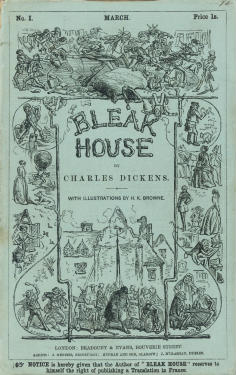This very personal and unpretentious memoir by Christo Brand helps fill in many dimensions of Mandela's life during imprisonment and also the varying faces of apartheid. Brand grew up in South Africa in unusual circumstances - though of Afrikaans descent, his parents were very open-minded and, within the limits of South African society and rules, were open to relations with all people. Accordingly, when he became a warder in the South African Prison system at age 18 (to avoid military service), he was a combination of naive obedience to the system coupled with an open-minded outlook toward people of all races.
When assigned to the maximum security prison on Robben Island, he was surprised to find that he was to oversee not the hardened criminals he expected, but "even worse", murderous terrorists, as the government had depicted them - especially including Nelson Mandela, who was 60 and had already served many years. Brand soon found that these were serious, decent and kind people, and over time, he began helping them in small ways that seemed to him to be only human, yet could easily have resulted in his dismissal.
One feature of imprisonment for the "Rivonians" (so-called because of the trial that resulted in their life sentences, held at Rivonia) that I had not known about and that weighed on them very heavily was that they were forbidden from seeing or even hearing the voices of children at any time, especially their own children. Thus, when Brand once secretly made a startling exception to the rules and allowed Mandela to briefly hold his granddaughter, it was particularly meaningful and helped cement their relationship. Not surprisingly, the book reveals Mandela to be amazingly patient, disciplined and kind to all - though also quite impressively resolute when he felt it necessary. An easy, heart-warming read - very highly recommended.
Saturday, March 28, 2015
Monday, March 23, 2015
Bleak House - Charles Dickens
I find Dickens' novels to be delicious and satisfying like a nice Stilton, and Bleak House is no exception. The tale is told from the perspective of Esther, a schoolmarmish and self-effacing young woman who lives to nurture others. Characteristically, the novel weaves Esther's own story into a complex tapestry of interconnected narratives and broader themes.
Esther is raised by a severe old woman and haunted by a vague suggestion that she was born into shame (a mystery which is gradually explored over the course of the novel). After the old woman dies, Esther is rescued by a wealthy patron, John Jarndyce, who pays for her education and finishing and then sets her up as caretaker of his estate, Bleak House. In addition to managing the keys and accounts, Esther dedicates herself to the care of John's beautiful niece, Ada, and acts as a chaperone and confidant to Ada and her carefree beau, cousin Richard.
The novel's principal theme is revealed through the story of Ada and Richard - the wards of Jarndyce - as the destructive power of the sprawling and ineffective Chancery justice system, which was ultimately reformed in part due to Dickens' powerful critique.
A poetic and very human look at the beauty and tragedy of the domestic sphere across multiple societal classes. Dickens captures the crude wisdom of impoverished women despite the ignorance, violence, and squalor of their existence, and through Esther's prim but compassionate eye, satirizes the conceits of those blustering do-gooders who would help the poor by giving them books they cannot read. He is also as adept at capturing the foibles and tragedies of the nobility as he is at portraying the life of the very poor. All in all, a very vibrant picture of the human condition.
Esther is raised by a severe old woman and haunted by a vague suggestion that she was born into shame (a mystery which is gradually explored over the course of the novel). After the old woman dies, Esther is rescued by a wealthy patron, John Jarndyce, who pays for her education and finishing and then sets her up as caretaker of his estate, Bleak House. In addition to managing the keys and accounts, Esther dedicates herself to the care of John's beautiful niece, Ada, and acts as a chaperone and confidant to Ada and her carefree beau, cousin Richard.
The novel's principal theme is revealed through the story of Ada and Richard - the wards of Jarndyce - as the destructive power of the sprawling and ineffective Chancery justice system, which was ultimately reformed in part due to Dickens' powerful critique.
A poetic and very human look at the beauty and tragedy of the domestic sphere across multiple societal classes. Dickens captures the crude wisdom of impoverished women despite the ignorance, violence, and squalor of their existence, and through Esther's prim but compassionate eye, satirizes the conceits of those blustering do-gooders who would help the poor by giving them books they cannot read. He is also as adept at capturing the foibles and tragedies of the nobility as he is at portraying the life of the very poor. All in all, a very vibrant picture of the human condition.

